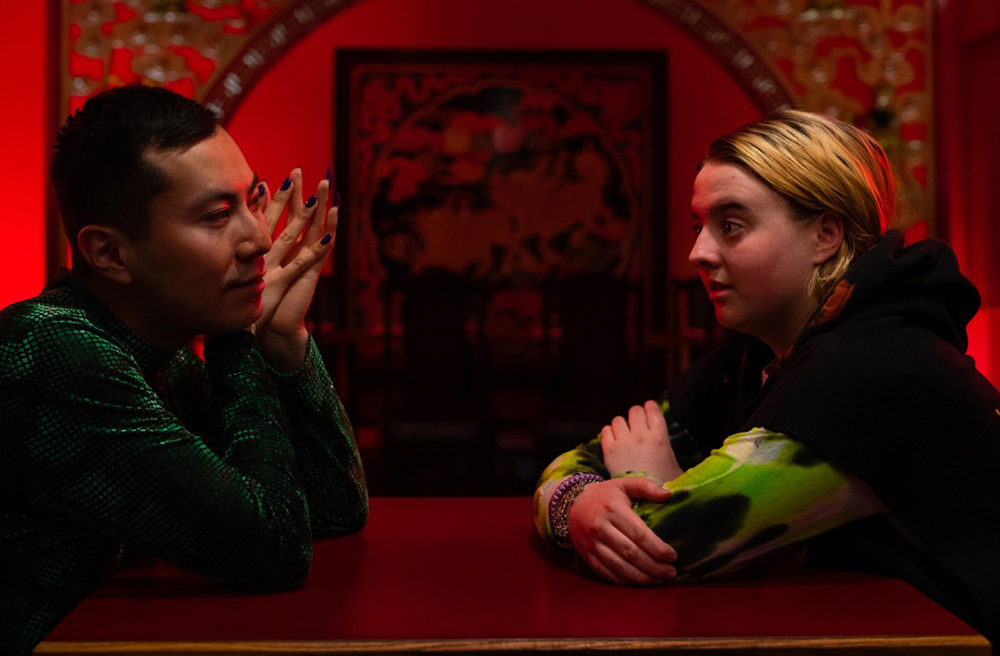“Do you like hearing all these thoughts?” Star (Sarah Walker) asks one of the only people in “Queens of the Qing Dynasty” who might say yes. She likely wouldn’t have asked if she suspected An (Ziyin Zheng), the hospital volunteer who’s been assigned to look after her after she’s been checked in for her latest psychotic episode, would answer otherwise, but he gives a more eloquent answer than she could expect, citing that the family drama she speaks of isn’t all that far removed from the stories he grew up hearing as cultural lore in Shanghai before relocating to Canada, even as sordid as it is, and when he feels as much of an outsider as an immigrant as she does, the two may have different dialects, but can give each other comfort in speaking the same language.
After her arresting feature debut “Werewolf,” centering on a pair of drug addicts whose hopelessness extended to being unable to quit one another, it seems like both a natural extension and a new challenge for writer/director Ashley McKenzie to explore how circumstance is as much a part of forging a deep connection as any common trait, adding the intriguing wrinkle that neither Star nor An is comfortable in their own skin. While An has fantasies of transitioning into a woman, Star is trapped in her own head, a victim of abuse who no longer has a family to lean on and has a memory shorter than those who take care of her at the local hospital.
Although Star has trouble expressing exactly what she’s thinking despite her disarming candor, McKenzie is able to find inventive ways in, quite literally sending an camera-carrying endoscope down her throat as nurses worry she’s poisoned herself and drawing on a inventively emotive score from Yu Su and Cecile Believe, elucidating the circuitry of Star’s wandering mind with twitchy electronica, working an EKG machine into a metronome. McKenzie certainly has an aesthetically distinctive vision as a filmmaker, but what shouldn’t be so unique yet is remains her rare ability to neither look down or her characters or make them subjects of pity when working their way out of dire straits, following Star and An into their private spaces without ever feeling as if she’s encroaching and allowing Walker, Zheng and even those with the smallest bit parts suggest far bigger lives off-screen than the glimpse you get will afford.
Still, what’s there is extraordinarily revealing as Star and An find themselves both on a ticking clock, with the latter knowing he may not be able to live abroad forever and the former facing the prospect of being discharged into a particularly cold Canadian winter. In the sterile, impersonal places where the two spend their days, it may seem as though there’s no difference between the outside and in, but rooms that once felt empty for Star and An feel less so with the lingering memory of seeing each other or sending a text. “Queens of the Qing Dynasty” may show them running up against the limits of their corporeal forms, but although what they’re capable of imagining can be frightening, it can be liberating as well, a freedom of thought not only exemplified by the characters but exuded by the filmmakers to refreshing ends.
“Queens of the Qing Dynasty” screens at Berlinale on February 16th at 3 pm at Cubix 7, February 19th at 3 pm at CinemaxX 6 and 7 and February 20th at 6 pm at the Akademie der Kunste.




